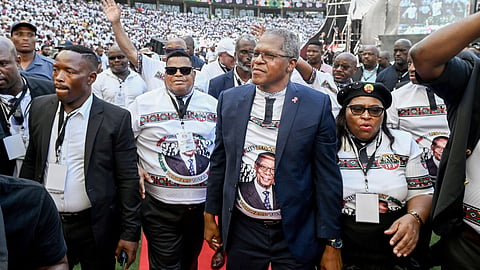Leadership
Chris Steyn: SA to be governed by a unity of old enemies?
The possible configurations of coalition governments is the burning question as SA heads to the polls next month for watershed elections.
By Chris Steyn
The possible configurations of coalition governments on national and provincial level is the burning question as South Africa heads to the polls next month for watershed elections.
This thorny issue was also high on the agenda this week when Inkatha Freedom Party (IFP) leader Velenkosini Hlabisa was hosted to a conference call by the Eurasia Group, a leading global political risk research and consulting firm headquartered in New York.
___STEADY_PAYWALL___

